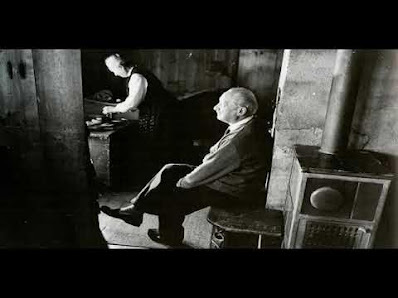The foundation of average people lies in the 'One says' (Man sagt) — in this, they see the justification of themselves

Heidegger clearly grasps the foundation of the average and massified human being.
All of his being is grounded in the "They" (Das Man) rather than in an original and personal vision of events.
Heidegger provides a perfect interpretation of this in his discussion of death:
Das Man hat für dieses Ereignis auch schon eine Auslegung gesichert. Die ausgesprochene oder auch meist verhaltene »flüchtige« Rede darüber will sagen: man stirbt am Ende auch einmal, aber zunächst bleibt man selbst unbetroffen (***)
"Das Man (The They) has already secured an interpretation for this event. The explicitly or usually implicitly ‘fleeting’ talk about it suggests: one dies eventually, but for now, one remains personally unaffected."
The attitude of the average and massified person is not only correlated with "one says" (man sagt) but also with "remaining unaffected" (sich unbetroffen bleiben).
"One dies" (man stirbt) has the same significance as "one says" (man sagt).
Death is treated as any idle talk (Gerede); when we say "one dies" (man stirbt), we proclaim our own "unaffectedness" (Unbetroffenheit) regarding dying.
And in this desire to remain unaffected, the average and massified person permanently excludes themselves from an active and original search for any interpretation and feels justified in it.
----------------------------
(***) Seind Und Zeit § 51
Published on September 06, 2024 08:09
No comments have been added yet.



